Have you ever had a niggling feeling in the pit of your stomach, urging you to take a particular path or make a specific decision? That, my friend, is your intuition at play. In a world that often prioritizes logic and rational thinking, tapping into your intuition may seem counterintuitive. But the truth is, your gut feeling is a powerful tool that can guide you towards making choices aligned with your highest good. Whether it’s a nudge to follow your dreams, avoid a situation, or connect with a certain person, honoring your intuition can lead to incredible opportunities and deep personal growth. So, let’s embark on a journey to discover the wonders of intuition and learn how to trust and cultivate this innate wisdom within us.
Contents
- What is Intuition?
- Listening to the Whisper: Understanding Your Gut Feeling
- Why Trusting Your Intuition Matters
- Signs Your Intuition is Speaking
- Developing a Strong Intuitive Connection
- Overcoming Doubt and Fear
- Using Tarot as a Tool to Enhance Intuition
- The Importance of Honoring Your Gut Feeling in Decision Making
- Practical Tips for Trusting Your Intuition
- The Journey of Self-Discovery through Intuition
- Conclusion
-
Frequently Asked Questions
- 1. How can I differentiate between intuition and fear?
- 2. Can intuition help in making important life decisions?
- 3. How can I develop my intuition?
- 4. Is intuition always right?
- 5. Can intuition help in relationships?
- 6. Can intuition be developed through the five senses?
- 7. Is there a connection between intuition and creativity?
- 8. How can journaling enhance intuition?
- 9. Can skepticism hinder intuition?
- 10. Can intuition guide career choices?
- References
What is Intuition?
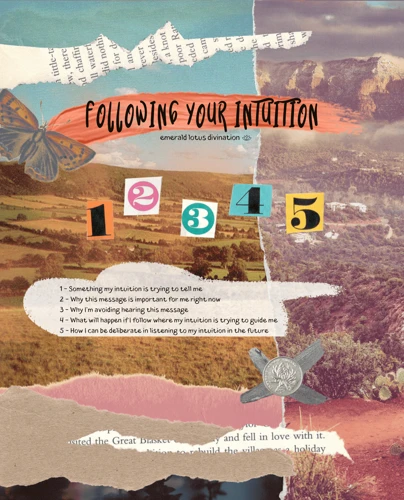
Intuition can be described as a deep knowing or instinctive understanding that arises without conscious reasoning. It is often referred to as a “sixth sense” or a “gut feeling.” While intuition is difficult to define and fully understand, it is a natural and innate part of human perception. It operates beyond logic and rationality, tapping into a realm of deeper wisdom and insight. Intuition can manifest as a subtle whisper, an inner knowing, or a physical sensation in the body. It is not limited to the conscious mind and can offer valuable guidance in various aspects of life, including decision making, relationships, and personal growth. Some may consider intuition as a form of “higher consciousness” or a connection to the universal intelligence. Developing and trusting your intuition requires tuning in to your inner self, embracing mindfulness, and opening yourself to the signals and messages that arise from within. It is a personal journey of self-discovery and self-trust.
Listening to the Whisper: Understanding Your Gut Feeling

Listening to the whisper of your gut feeling is an essential practice to understanding and harnessing the power of your intuition. Your gut feeling often communicates through subtle cues, nudges, and sensations that may be easily overlooked in the hustle and bustle of everyday life. To truly understand your gut feeling, it is important to create moments of stillness and presence. This can be achieved through practices such as meditation, deep breathing, or quiet reflection. By cultivating mindfulness, you create the space to tune in and listen to the whispers of your intuition. It’s important to pay attention to the physical sensations that arise in your body when faced with a decision or situation. Your body holds wisdom and can give you valuable insights. Trusting your gut feeling requires a deep sense of self-awareness and self-trust. As you become more attuned to your intuition, you may notice patterns or themes that emerge, helping you gain clarity and understanding. Honouring your gut feeling means respecting and valuing the messages it brings and taking them into account as you navigate through life. So, when you feel that subtle tug or have that unexplainable hunch, pause, listen, and trust the wisdom within yourself. Meditation can serve as a powerful tool in deepening your connection to your intuition and honing your ability to listen to your gut feeling.
Why Trusting Your Intuition Matters
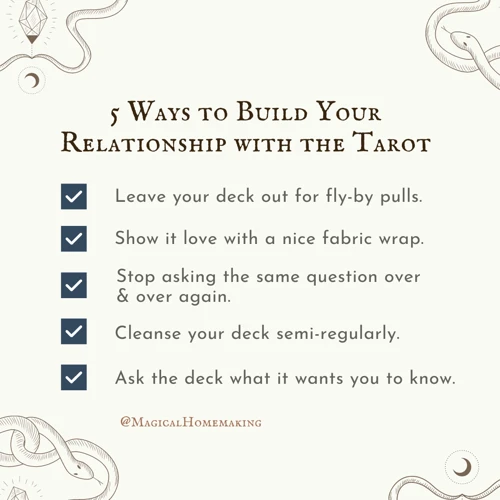
Trusting your intuition is of utmost importance as it can serve as a compass guiding you towards a life that is authentic, fulfilling, and in alignment with your true desires. Intuition has a unique way of cutting through the noise of external influences and societal expectations, allowing you to tap into your inner knowing and make choices that resonate with your core values and beliefs. When you trust your intuition, you are not solely relying on logical reasoning or external validation; instead, you are attuned to your own inner wisdom and intuition. This can lead to a greater sense of personal empowerment and self-confidence. By listening to and honoring your intuition, you are more likely to make decisions that align with your purpose, passions, and personal growth. Trusting your intuition can also help you navigate challenges and uncertainties with more ease and clarity. It serves as a powerful tool for self-discovery and can lead to greater self-trust and authenticity in all aspects of life. To enhance and strengthen your intuition, practices such as journaling and reflective writing can be valuable tools to deepen your connection with your inner knowing and intuition. By exploring your thoughts and feelings on paper, you can gain insights and clarity that may not have been apparent through conscious thought alone. So, by trusting your intuition, you open yourself up to a world of possibilities and can enhance your overall well-being and sense of fulfillment. (source)
Signs Your Intuition is Speaking
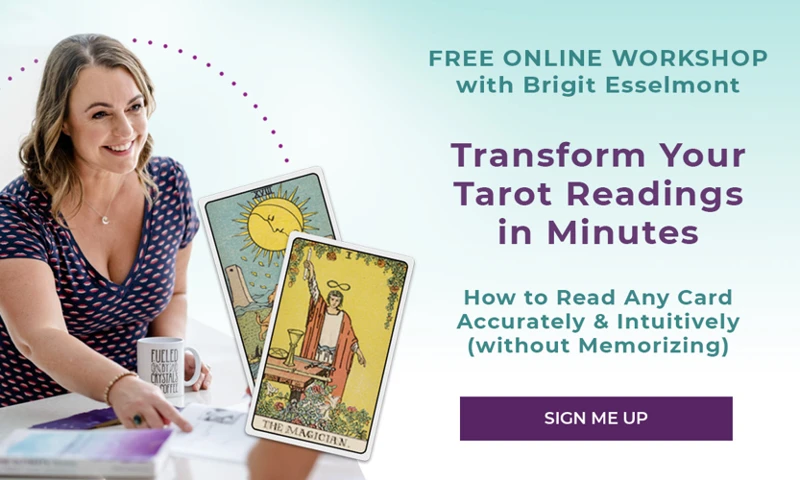
Signs Your Intuition is Speaking:
1. Gut Feeling: Your intuition often communicates through physical sensations, particularly in the gut area. You may experience a subtle or intense feeling in your stomach that signals a sense of knowing or uneasiness about a situation, person, or decision. Trusting these sensations can guide you towards the right path.
2. Heightened Awareness: When your intuition is active, you may notice an increased sense of awareness and presence. You might become more attuned to the details of your surroundings and perceive things that you may have previously overlooked. This heightened awareness can provide valuable insights and guidance.
3. Synchronicities: Pay attention to meaningful coincidences or synchronicities that occur in your life. These can be seen as signs or messages pointing you in the right direction. Keep a journal and reflect on these synchronistic events to gain a deeper understanding of the messages your intuition is conveying.
4. Unexplainable Knowing: Have you ever had a moment where you just “knew” something without any logical explanation? Intuition often brings forth this unexplainable knowing. Trusting these insights can lead to powerful and transformative experiences.
5. Clear Inner Voice: Your intuition may communicate through an inner voice or inner dialogue. This voice tends to feel calm, wise, and compassionate. It may provide guidance or cautionary advice. Pay attention to this inner voice, as it can be a reliable source of wisdom.
6. Body Sensations: Intuition can also manifest as sensations in different parts of your body. For example, you may feel a tingling sensation or a gentle warmth in your chest when faced with a positive or affirming situation. Conversely, a sense of constriction or heaviness in your chest may indicate a warning or signal to proceed with caution. Tune in to these physical sensations and trust what your body is telling you.
7. Emotional Resonance: Your intuition often speaks through your emotions. Pay attention to how you feel when making decisions or considering different options. Your intuition may guide you towards choices that align with your deepest values and desires, leading to a sense of peace, excitement, or joy.
By recognizing and attuning yourself to these signs, you can strengthen your relationship with your intuition and learn to trust its guidance. It may also be helpful to explore practices that help enhance your intuition, such as meditation or engaging your five senses.
Developing a Strong Intuitive Connection
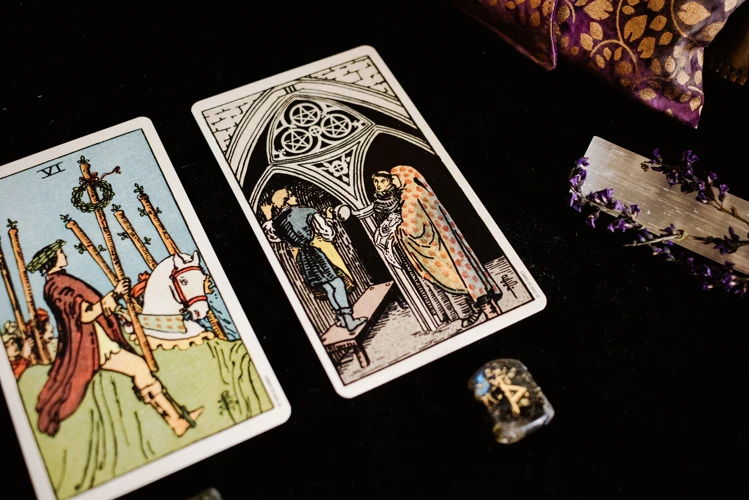
Developing a strong intuitive connection requires practice and intention. Here are some steps you can take to cultivate and enhance your intuition:
- Cultivating Mindfulness: Practicing mindfulness helps quiet the mind and allows you to be fully present in the moment. This heightened awareness can help you tap into your intuition more easily.
- Connecting with Your Body: Your body holds valuable wisdom. Pay attention to physical sensations, such as tightness in your chest or a lightness in your stomach. These sensations can provide insights and guidance.
- Paying Attention to Dreams and Synchronicities: Dreams and synchronicities often hold hidden messages and symbols that can offer guidance and support. Keep a dream journal and be open to the signs and symbols that show up in your daily life.
- Embracing Meditation and Quiet Reflection: Meditation is a powerful tool for quieting the mind and connecting with your inner self. Regular meditation practice can help enhance your intuitive abilities. Consider exploring different meditation techniques, such as sensory meditation, to deepen your connection with your intuition.
By incorporating these practices into your daily life, you can strengthen your intuitive connection and deepen your trust in the wisdom that arises from within. It is a journey of self-discovery and self-awareness, allowing you to navigate life with greater clarity and alignment with your true self.
1. Cultivating Mindfulness
Cultivating mindfulness is an essential practice when it comes to strengthening your intuitive connection. Mindfulness involves bringing awareness to the present moment and observing your thoughts and emotions without judgment. By quieting the mind and focusing on the present, you create space to tune in to your intuition. Here are some ways to cultivate mindfulness:
- Meditation: Regular meditation practice can help calm the mind and increase your ability to be present. Set aside dedicated time each day to sit in silence and observe your thoughts. Meditation can also enhance your self-awareness, making it easier to recognize and trust your intuition. To learn more about the power of meditation in enhancing intuition, click here.
- Deep Breathing: Take slow, deep breaths and focus your attention on the sensations of your breath. This simple practice can help ground you in the present moment and bring clarity to your thoughts and feelings.
- Body Scan: Close your eyes and tune in to your physical sensations. Start from the top of your head and slowly scan down through your body, paying attention to any areas of tension or discomfort. This practice helps you connect with your body and become more attuned to its signals.
- Mindful Activities: Engage in daily activities with awareness and presence. Whether it’s drinking a cup of tea, going for a walk in nature, or doing chores, bring your full attention to the task at hand. This cultivates mindfulness and helps you stay connected to your intuition in the midst of your daily life.
By incorporating these mindfulness practices into your routine, you’ll develop the ability to quiet the noise of the mind and listen to the subtle whispers of your intuition. Remember, mindfulness is an ongoing practice, and with time, it will become easier to access and trust your intuitive guidance.
2. Connecting with Your Body
One powerful way to enhance your intuitive connection is by connecting with your body. Our bodies have a unique language of their own, and by paying attention to its signals, we can access deeper insights and wisdom. Here are a few practices to help you connect with your body and tap into your intuition:
1. Body Scan Meditation: Set aside some quiet time to practice a body scan meditation. Start by bringing your attention to different parts of your body, from head to toe. Notice any sensations, tensions, or discomfort that arise. This practice helps you cultivate awareness of your body’s signals and can provide valuable insights into how you are truly feeling.
2. Movement and Exercise: Engaging in regular physical activity and movement can help you become more attuned to your body. Whether it’s practicing yoga, going for a walk in nature, or dancing, find activities that allow you to connect with your body and tune in to its sensations. Notice how your body responds to different movements and exercises, and pay attention to any intuitive messages that may arise.
3. Body-Centered Practices: Explore body-centered practices such as tai chi, qigong, or breathwork. These practices encourage a deeper connection between the mind and body, helping you tap into your intuition more effortlessly. They also promote a sense of presence and grounding, allowing you to access the wisdom and guidance stored within your body.
4. Self-Care and Self-Compassion: Taking care of your body is crucial for cultivating a strong intuitive connection. Prioritize self-care practices such as nourishing yourself with healthy meals, getting enough restful sleep, and engaging in activities that bring you joy and relaxation. When you treat your body with love and kindness, you create a harmonious environment for intuition to flourish.
Remember, connecting with your body is an ongoing practice. Be patient with yourself, listen to your body’s messages, and trust the signals it sends. By building a strong mind-body connection, you can deepen your intuitive abilities and gain clarity and guidance on your life’s journey.
3. Paying Attention to Dreams and Synchronicities
Paying attention to dreams and synchronicities is an essential practice for developing a strong intuitive connection. Dreams have long been considered a window into the unconscious mind, and they can provide valuable insights and messages from your intuition. Keeping a dream journal by your bedside can help you capture and interpret the symbolism and emotions in your dreams. Reflecting on these dream entries can reveal patterns, themes, and hidden meanings that can guide you in your waking life.
Synchronicities, on the other hand, are meaningful coincidences that occur in your life. These are events or encounters that seem to have a deeper significance or connection beyond mere chance. Synchronicities can serve as gentle nudges from the universe, guiding you towards the right path or confirming your intuition. They can appear in various forms, such as repeatedly seeing certain symbols or numbers, encountering specific people, or stumbling upon relevant information just when you need it.
To cultivate awareness of dreams and synchronicities, consider incorporating these practices into your daily routine:
1. Keep a dream journal: Place a notebook and pen by your bed and make a habit of recording your dreams as soon as you wake up. Include as much detail as possible, including emotions, symbols, and any notable characters or events that stand out.
2. Reflect on your dreams: Take time to reflect on the meaning and symbolism of your dreams. Look for recurring themes, emotions, or messages that may help you gain deeper insights into your intuition.
3. Notice synchronicities: Be open and receptive to the synchronicities that occur in your life. Pay attention to the people, events, or messages that seem to align with your thoughts or desires. Trust your intuition to recognize these signs when they appear.
4. Trust your instincts: As you start to pay attention to your dreams and synchronicities, trust your instincts on how to interpret them. Learning to trust your intuitive guidance is a key step in building a strong intuitive connection.
Remember, dreams and synchronicities can be subtle, so staying open-minded and receptive is crucial. They can offer profound guidance and support on your journey of self-discovery and intuition development. By paying attention to these subtle signs and messages, you can deepen your connection with your intuition and invite its wisdom into your daily life.
4. Embracing Meditation and Quiet Reflection
Meditation and quiet reflection are powerful practices that can greatly enhance your connection to your intuition. By creating a calm and focused state of mind, you open yourself up to receiving intuitive insights and messages. Through meditation, you can quiet the constant chatter of the mind and create space for your intuition to be heard. Find a quiet and comfortable space where you can sit undisturbed. Close your eyes and begin to focus on your breath, allowing your thoughts to gradually fade into the background. As you enter a state of relaxation, tune in to your body and your emotions, observing any sensations or feelings that arise. Be open and receptive to any intuitive guidance that may come through. Alternatively, you can engage in quiet reflection by journaling or engaging in reflective writing. This allows you to explore your thoughts and emotions in a more structured manner, uncovering any underlying intuitive insights that may be present. Regular practice of meditation and quiet reflection can help you develop a deeper sense of self-awareness and strengthen your intuitive connection. If you’re looking for a step-by-step guide on incorporating meditation into your routine, you can follow this helpful resource on the power of meditation for intuition.
Overcoming Doubt and Fear
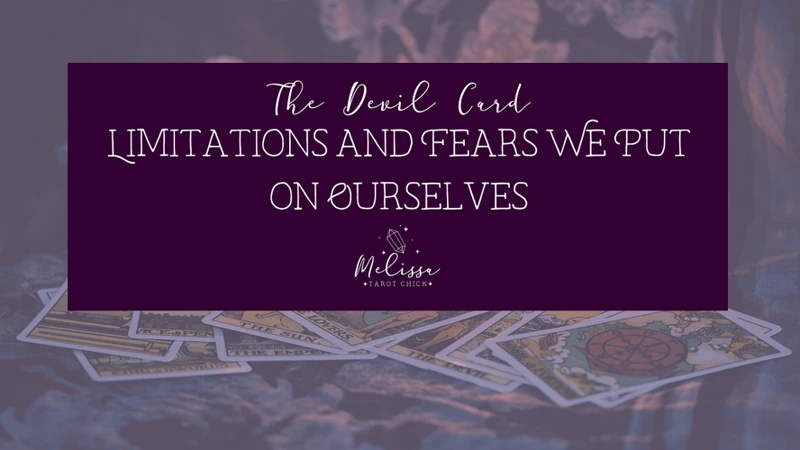
Doubt and fear can often be the biggest hurdles to trusting and honoring our intuition. When faced with the unknown or making important decisions, our logical mind may try to take over and question the validity of our intuitive guidance. Letting go of logical reasoning and surrendering to the wisdom of your intuition is the first step in overcoming doubt. Reflecting on past experiences where your intuition has proven to be accurate can help build confidence in its reliability. Self-analysis and introspection can also aid in uncovering underlying fears or biases that may be clouding your intuition. Building confidence in your intuition is an ongoing process that requires practice and patience. It is important to surround yourself with a supportive network of friends, mentors, or like-minded individuals who can validate and encourage your intuitive experiences. Overcoming doubt and fear paves the way for a stronger connection to your intuition, allowing you to embrace its power and make decisions based on your inner wisdom.
1. Letting Go of Logical Reasoning
To truly embrace and trust your intuition, one of the first steps is letting go of relying solely on logical reasoning. While logic and reason have their place, they can often cloud our intuition and prevent us from tapping into our inner wisdom. Here are some ways to let go of logical reasoning and open yourself up to intuition:
- Embrace uncertainty: Intuition often guides us towards unknown possibilities or paths that may not make sense logically. Embrace the fact that life is full of uncertainties and that sometimes, the best decisions come from trusting your gut feeling.
- Practice non-attachment: Let go of the need to control outcomes and detach yourself from the outcome of a decision. Trust that your intuition will guide you towards what is right for you, even if it doesn’t align with what seems logical or expected.
- Be open to unconventional solutions: Logic often follows a linear, step-by-step approach. Intuition, on the other hand, can offer unconventional and creative solutions. Be open to considering possibilities that may seem unconventional or go against the norm.
- Validate your intuition: While it’s important to let go of over-reliance on logic, it’s also essential to validate your intuition. Look back on past experiences where you followed your gut feeling and it turned out well. Recognize that your intuition has its own track record of success.
By letting go of logical reasoning and embracing the unknown, you create space for your intuition to flourish and guide you towards decisions and actions that align with your authentic self. Trust in the process, and remember that there is wisdom in the illogical.
2. Reflection and Self-Analysis
Reflection and self-analysis are essential components of developing trust in your intuition. Taking the time to reflect on your own thoughts, feelings, and experiences can help you gain clarity and insight into your inner self. Here are some ways to engage in reflection and self-analysis to enhance your intuitive connection:
- Journaling: Grab a pen and paper or open a blank document on your computer, and start writing down your thoughts and emotions. Journaling allows you to externalize your internal dialogue and gain a fresh perspective on your feelings and experiences. It can also help you identify recurring patterns, themes, and insights that may be related to your intuition.
- Questioning: Ask yourself thought-provoking questions to stimulate self-reflection. For example, ask yourself, “What does my intuition tell me about this situation?” or “What are my fears and doubts that may be blocking my intuition?” By questioning yourself, you can uncover deeper layers of understanding and tap into your intuitive wisdom.
- Mindful Observation: Practice observing your thoughts, emotions, and bodily sensations in a non-judgmental way. Through mindfulness, you can become more aware of the subtle signals and nudges from your intuition. Pay attention to the small details and the moments that stand out to you. Over time, this observation practice can help you develop a heightened sense of self-awareness and intuitive perception.
- Seeking Feedback: Sometimes, gaining an outside perspective can shed light on aspects of yourself that you may not have considered. Seek feedback from trusted friends, mentors, or therapists who can provide valuable insights and reflections. Their perspectives can serve as a mirror to help you better understand yourself and validate your intuition.
By engaging in reflection and self-analysis, you can cultivate a deeper understanding of yourself and your intuitive abilities. This self-awareness will enable you to recognize and trust the messages that arise from your intuition, leading to more confident decision-making and personal growth.
3. Building Confidence in Your Intuition
Building confidence in your intuition is an important step in fully harnessing its power. Here are some strategies to help you strengthen your trust in your innate wisdom:
1. Reflect on past experiences: Take the time to recall instances where you followed your intuition and it resulted in positive outcomes. Reflecting on these past successes can boost your confidence in your intuition and remind you of its reliability.
2. Validate your intuition: Start by making small decisions based on your gut feelings and see how they play out. When your intuition proves to be accurate, it reinforces your trust in it. Over time, as you continue to acknowledge and validate your intuition, your confidence in its guidance will grow.
3. Embrace the unknown: Recognize that intuition often operates beyond the realm of rational understanding. Be open to the idea that your intuition may lead you down unexpected paths or challenge logical reasoning. Embracing the unknown and allowing yourself to step outside of your comfort zone can help you develop a deeper trust in your intuitive abilities.
4. Practice self-compassion: Understand that nobody is infallible, and mistakes can happen even when following your intuition. Be kind to yourself when things don’t go as planned and remember that learning and growth come from every experience. Self-compassion helps to cultivate a safe space for your intuition to flourish.
5. Seek support: Surround yourself with individuals who respect and encourage your intuition. Share your experiences with trusted friends or find a mentor who can provide guidance and validation. Connecting with like-minded individuals can reaffirm your belief in your intuition and provide a supportive network.
By implementing these strategies, you can gradually build confidence in your intuition and develop a stronger sense of self-trust. Remember, building confidence in your intuition is a lifelong journey, and it requires patience, practice, and a willingness to listen to your inner wisdom.
4. Surrounding Yourself with Support
Surrounding yourself with support is a crucial step in overcoming doubt and fear and cultivating trust in your intuition. Building a network of like-minded individuals who understand and value the power of intuition can provide you with the encouragement and validation needed on your journey. Seek out friends, mentors, or support groups who have similar beliefs and experiences. Engaging in meaningful conversations, sharing stories, and receiving guidance from others who have trusted their intuition can help you gain confidence in your own intuitive abilities.
Additionally, it is important to establish healthy boundaries with individuals who may be dismissive or skeptical of intuition. Surrounding yourself with people who respect and value your intuitive insights can create a safe and nurturing environment for you to embrace and explore your inner wisdom.
Promoting a supportive atmosphere extends beyond personal connections. Engaging with resources such as books, podcasts, or online communities dedicated to intuition and personal growth can provide a wealth of knowledge and inspiration. These platforms offer insights from experts and individuals who have experienced the transformative power of intuition, further reinforcing your belief in its validity.
Remember that trust in your intuition can be strengthened by the collective belief and experiences shared by those around you. By surrounding yourself with supportive individuals and engaging in supportive communities, you create an environment that encourages and validates your intuition, helping you overcome doubts and fears along your intuitive journey.
Using Tarot as a Tool to Enhance Intuition
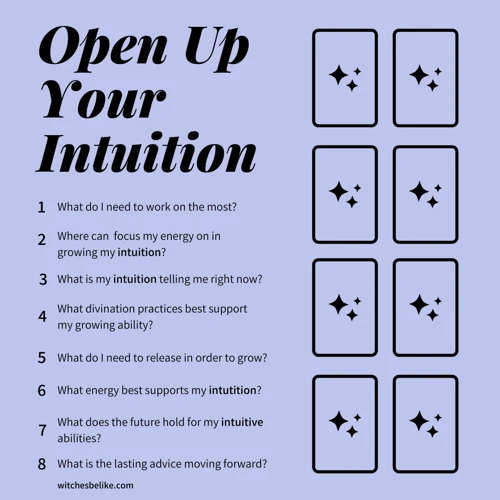
Tarot cards have long been used as a powerful tool to enhance intuition and gain insights into various aspects of life. The imagery, symbolism, and archetypes depicted in tarot cards serve as a mirror to our subconscious mind, allowing us to access our intuition on a deeper level. The process of using tarot cards involves drawing cards from a deck and interpreting their meanings based on intuition and personal connection.
Tarot cards can provide a visual representation of the energies and influences surrounding a situation or question. Each card carries its own unique symbolism and message, which can help unlock our intuitive understanding of a particular situation. The act of selecting cards and examining their imagery encourages us to tap into our intuition and trust the messages that come forth.
To use tarot as a tool for enhancing intuition, it is important to approach the practice with an open mind and a willingness to trust your inner guidance. Before starting a reading, take a moment to center yourself and set your intention to receive clear and meaningful insights. As you shuffle the cards, focus on your question or the area of your life you’d like to gain insights into. When you feel ready, draw the cards and pay attention to any immediate thoughts, feelings, or sensations that arise.
Interpreting the cards and their meanings is an intuitive process. Trust your initial impressions and the associations that come to mind when you look at each card. Allow your intuition to guide you in understanding the messages the cards hold for you. It is important to remember that tarot is not about predicting the future with absolute certainty but rather gaining insights and perspectives to empower your decision-making process.
Using tarot as a tool to enhance intuition can be a transformative experience that deepens your connection to your inner wisdom. It encourages self-reflection, self-trust, and a heightened awareness of the guidance that resides within you. The practice of tarot can be a valuable addition to your intuitive journey, providing you with a visual and symbolic language to further develop and trust your intuition. So grab a deck of tarot cards, embrace the mystery, and embark on a journey of self-discovery through the power of tarot and intuition.
The Importance of Honoring Your Gut Feeling in Decision Making
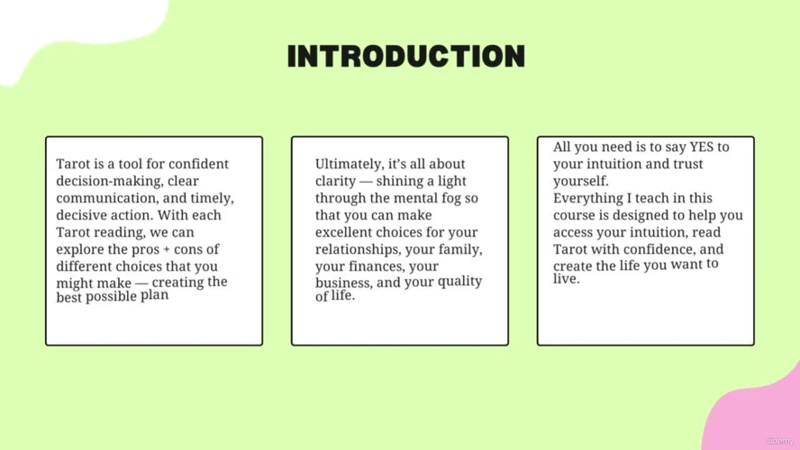
When it comes to decision making, we often rely heavily on logical reasoning, weighing pros and cons, and seeking external advice. However, honoring your gut feeling is equally important, if not more so. Your intuition acts as a compass, guiding you towards choices that align with your true desires, values, and purpose. It taps into a deeper wisdom that can be easily overlooked by the rational mind. Not only does honoring your gut feeling enhance your ability to make decisions that are in line with your authentic self, but it also supports personal growth and fulfillment. Trusting your intuition can help you make choices that may not always make logical sense but are right for you on a deeper level. It can lead you to new opportunities, meaningful connections, and a life that feels more in harmony with your true essence. By honoring your gut feeling in decision making, you are reclaiming the power and wisdom that resides within you and embracing a more intuitive and fulfilling way of living. Remember, every decision you make is an opportunity to deepen your trust in yourself and cultivate a stronger connection to your intuition.
Practical Tips for Trusting Your Intuition
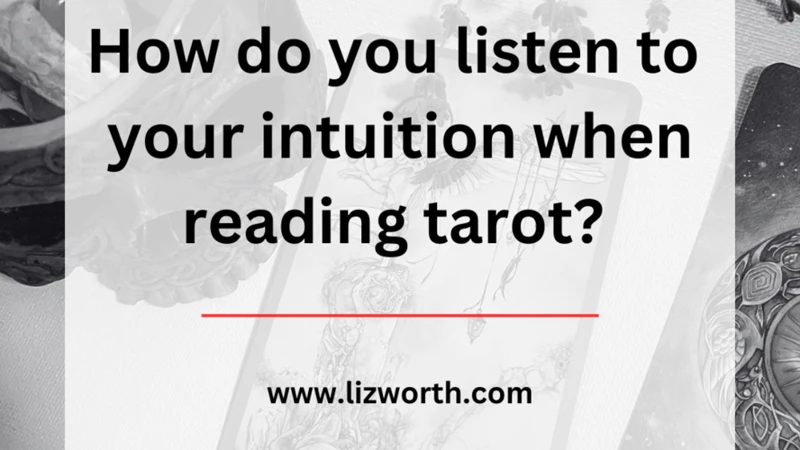
Trust in your intuition is something that can be cultivated and strengthened over time. Here are some practical tips to help you build confidence in your intuitive abilities:
1. Start with Small Decisions: Begin by practicing listening to your intuition in less significant choices. Pay attention to the subtle nudges and feelings that arise when making these decisions, and trust your initial response.
2. Journaling and Reflection: Keep a journal to document your intuitive experiences and insights. Reflecting on these entries can help you recognize patterns and validate the accuracy of your intuition over time. Try reflective writing exercises to further deepen your connection with your intuition.
3. Trusting Your Initial Reaction: When faced with a decision or situation, listen to your first instinctual response. Avoid overthinking or second-guessing yourself. Your initial reaction is often a direct reflection of your intuition.
4. Stepping Outside Your Comfort Zone: Challenge yourself to step outside of your comfort zone and follow your intuitive guidance. This may involve taking risks or making choices that may seem unconventional. Trust that your intuition is leading you towards growth and expansion.
By incorporating these practical tips into your daily life, you can strengthen your intuitive connection and develop a greater sense of trust in your inner guidance. Remember, trusting your intuition is a journey, and with patience and practice, you can enhance your ability to make decisions aligned with your highest good.
1. Start with Small Decisions
When it comes to trusting your intuition, it can be helpful to begin with small decisions. By starting small, you can gradually build confidence in your ability to rely on your gut feeling. Consider everyday choices such as what to wear, what to cook for dinner, or which book to read. Take a moment to tune in to your inner voice and notice how it responds to each option. Pay attention to any intuitive nudges or feelings that arise. Trust yourself and go with the choice that feels right, even if it doesn’t seem logical. Honouring these small intuitive decisions can help you develop a stronger connection to your intuition and build trust in its guidance. Over time, as you witness the positive outcomes of following your intuition, you will feel more comfortable applying it to bigger decisions and life-changing choices. Remember, trusting your intuition is a process, and starting small is a great way to ease into it.
2. Journaling and Reflection
Journaling and reflection are powerful tools for enhancing and strengthening your connection to your intuition. By writing down your thoughts, feelings, and experiences, you create a space for self-expression and self-exploration. Journaling allows you to gain insight into your inner world, uncover patterns, and identify recurring themes. It can serve as a way to externalize your thoughts and emotions, making them more tangible and easier to decipher. When using journaling to enhance intuition, there are a few key practices to keep in mind.
1. Set aside dedicated time: Schedule regular journaling sessions where you can fully immerse yourself in the process without distractions. This dedicated time allows you to focus on your thoughts and emotions and allows your intuition to come forward.
2. Explore open-ended prompts: Use prompts that encourage introspection and self-reflection. Ask open-ended questions that stimulate deep thought and draw out your intuitive insights. Examples could include “What am I feeling drawn to in my life right now?” or “What signs or coincidences have been appearing in my life lately?”
3. Write without judgment: When journaling, let go of any self-criticism or judgment. Allow your thoughts to flow freely without filtering or editing. Trust that whatever comes up on the pages is valid and valuable.
4. Reflect on your entries: After journaling, take the time to reflect on what you have written. Look for patterns, recurring themes, and any intuitive nudges that may stand out. This process of reflection can help you gain deeper insights and clarity.
Journaling and reflection can also be combined with other practices, such as meditation or dream analysis, to further enhance your intuitive connection. By regularly engaging in journaling and reflection, you create a space for your intuition to be heard and honored, allowing it to guide you in making decisions and navigating your life’s journey. To learn more about enhancing your intuition through journaling and reflection, check out our article on “Enhancing Intuition through Journaling and Reflective Writing.”
3. Trusting Your Initial Reaction
Trusting your initial reaction is an essential aspect of developing and honing your intuition. When faced with a decision or situation, your first instinctive response is often a valuable indicator of what feels right to you. To cultivate trust in your initial reaction, it’s important to create a space where you can listen and tune in to yourself without interference or judgment. Here are some tips to help you strengthen this aspect of your intuition:
- Practice self-awareness: Take the time to check in with yourself regularly. Notice how your body and emotions respond to different situations. Pay attention to any immediate feelings or sensations that arise when you encounter new experiences. Trust that these initial reactions hold valuable insights.
- Embrace spontaneity: Sometimes, our initial reaction pushes us towards taking spontaneous actions or making decisions without overthinking. While it’s important to consider practical aspects, allowing yourself to follow your instinctive response can lead to exciting opportunities and personal growth.
- Reflect on past experiences: Look back at instances where you trusted your initial reaction and assess the outcomes. Did your gut feeling prove to be accurate? Reflecting on these experiences can help solidify your trust in your intuition and give you the confidence to rely on it more often.
- Keep a journal: Journaling is an excellent way to track your initial reactions and intuitive responses over time. Write down your first impressions, inklings, or hunches, along with the subsequent outcomes. This practice can provide you with a record of the times when your intuition guided you correctly, reinforcing your trust in it.
Remember, trusting your initial reaction doesn’t mean disregarding logic or rational thinking entirely. It’s about honoring and integrating your intuitive insights into your decision-making process. Over time, as you practice and validate your initial reactions, your intuition will become a reliable compass that guides you towards living a more authentic and fulfilling life.
4. Stepping Outside Your Comfort Zone
Stepping outside of your comfort zone is a powerful way to enhance your intuition and cultivate a deeper connection with yourself. When you remain within familiar and comfortable boundaries, it becomes easy to rely solely on logical reasoning and ignore the subtle messages of your intuition. By intentionally venturing into new and unfamiliar territories, you challenge yourself to rely on your gut feeling and inner guidance. Stepping outside of your comfort zone can be as simple as trying a new activity, exploring a different route to work, or engaging in conversations with people from diverse backgrounds. It can also involve taking bigger leaps, such as pursuing a new career path or traveling alone to an unfamiliar destination. These experiences push you to tap into your intuition for guidance, as you navigate uncharted territory. Stepping outside your comfort zone requires courage, but the rewards are profound. It allows you to break free from self-imposed limitations, expand your perspective, and discover new aspects of yourself. It challenges your preconceived notions and opens your mind to new possibilities. As you embrace discomfort and embrace the unknown, you become more attuned to your intuition, learning to trust yourself even in unfamiliar situations. So, take that leap, embrace the unknown, and allow your intuition to illuminate the path that lies beyond your comfort zone.
The Journey of Self-Discovery through Intuition
Embarking on the journey of self-discovery through intuition is a transformative and empowering experience. When you start to trust and honor your intuition, you open yourself up to a deeper understanding of who you are and what truly matters to you. Through intuition, you gain insights and wisdom that can guide you towards living a more authentic and fulfilling life.
One of the key aspects of this journey is self-reflection. By practicing introspection, you can gain a better understanding of your thoughts, emotions, and patterns of behavior. Reflecting on past experiences can help you uncover patterns and recognize recurring themes in your life. This knowledge allows you to make conscious choices and avoid falling into the same patterns that no longer serve you.
As you journey deeper into self-discovery, you may find that certain practices and activities help enhance your intuition. Journaling and reflective writing, for example, provide an opportunity to explore your thoughts and feelings in a more structured way. By putting your thoughts on paper, you can gain clarity and perspective, and also track patterns and shifts in your intuition over time. Additionally, engaging your five senses in various activities can also enhance your intuition. By fully immersing yourself in experiences, such as nature walks, art appreciation, or mindful eating, you open yourself up to subtle signals and messages from your intuition.
Throughout this journey, it is important to be patient and gentle with yourself. Connecting with your intuition takes time and practice. It requires creating space for stillness, quiet reflection, and deep listening. Embrace the process of self-discovery through intuition as an ongoing exploration, where every step forward brings new insights and growth.
As your intuition strengthens, you may find that it becomes an integral part of your decision-making process. When faced with choices or dilemmas, you can rely on your gut feeling to guide you. Trusting your intuition in decision-making allows you to make choices aligned with your authentic self and values, leading to greater fulfillment and satisfaction.
Remember, the journey of self-discovery through intuition is unique to each individual. Embrace your own path, follow the whispers of your intuition, and allow it to guide you towards a more purposeful and meaningful life.
Conclusion
In conclusion, trusting and honoring your intuition is a powerful practice that can greatly enhance your life. It is about listening to the whispers of your inner wisdom and allowing it to guide your decisions and actions. While it may initially seem challenging to rely on something as intangible as intuition, the more you cultivate and trust this inner voice, the stronger and more accurate it becomes. By paying attention to the signs, embracing meditation and mindfulness, and releasing the grip of doubt and fear, you can develop a deep connection with your intuition. It is essential to remember that intuition is not infallible, and it should not replace critical thinking or careful consideration. However, when utilized alongside logical reasoning, intuition can offer a unique perspective and provide insights that may not be immediately apparent. So, embrace your intuition, honor your gut feelings, and embark on a beautiful journey of self-discovery and self-trust. Your intuition holds the key to unlocking your highest potential and leading a life aligned with your truest desires. Trust yourself, for within you lies the wisdom of intuition.
Frequently Asked Questions
1. How can I differentiate between intuition and fear?
Intuition often comes from a place of calm and clarity, while fear tends to be accompanied by anxiety and unease. Intuition guides you towards growth and positive outcomes, whereas fear can hold you back. Trusting your gut feeling and examining the emotions associated with it can help you discern between intuition and fear.
2. Can intuition help in making important life decisions?
Absolutely! Intuition can provide valuable insights and guidance when faced with major life decisions. It can help you align with your authentic self, uncover hidden possibilities, and make choices that are in alignment with your purpose and values.
3. How can I develop my intuition?
Developing intuition requires practice and self-awareness. Cultivating mindfulness, paying attention to your dreams and synchronicities, and embracing practices like meditation can help strengthen your intuitive connection.
4. Is intuition always right?
While intuition is a powerful tool, it is important to note that it is not infallible. It is influenced by various factors such as personal biases and past experiences. It’s advisable to consider intuition alongside logical reasoning and external information to make well-informed decisions.
5. Can intuition help in relationships?
Yes, intuition can provide valuable insights in relationships. It can help you sense when something is off or when someone is trustworthy, allowing you to make wiser choices in your relationships.
6. Can intuition be developed through the five senses?
Absolutely! Engaging and exploring your five senses – sight, hearing, smell, taste, and touch – can enhance your intuitive abilities. Tuning in to your surroundings and paying attention to subtle cues can help you develop a deeper connection with your intuition.
7. Is there a connection between intuition and creativity?
Yes, intuition and creativity are closely linked. An intuitive approach to creativity involves tapping into your inner knowing, trusting the creative process, and allowing ideas and inspiration to flow naturally.
8. How can journaling enhance intuition?
Journaling can help enhance intuition by providing a space for self-reflection and introspection. It allows you to capture and examine your thoughts, feelings, and intuitive hunches, providing clarity and insight into your inner guidance.
9. Can skepticism hinder intuition?
Yes, skepticism and doubt can hinder your ability to trust and act on your intuition. It’s important to cultivate an open and receptive mindset to fully embrace and benefit from your intuitive guidance.
10. Can intuition guide career choices?
Absolutely! Your intuition can provide valuable guidance when it comes to career choices. It can help you align with work that resonates with your passions, values, and higher purpose, leading to greater fulfillment and success.






